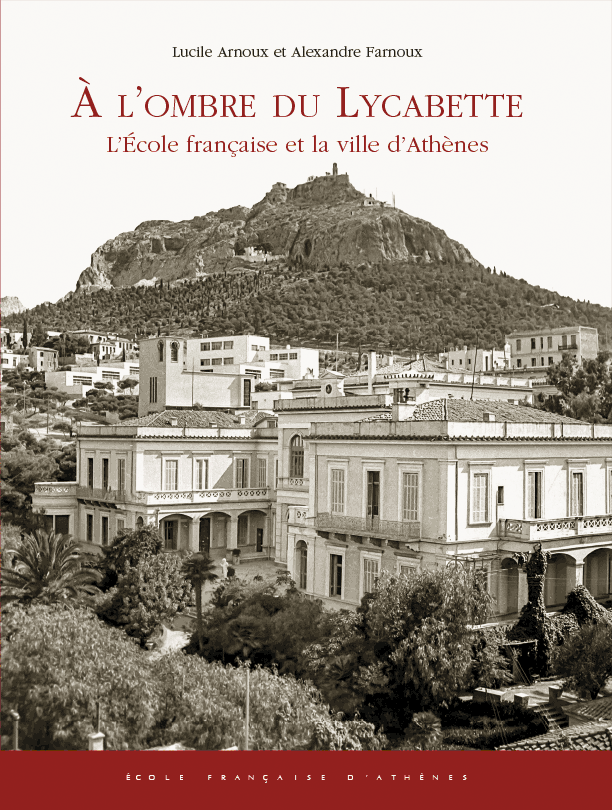year: 2021
isbn: 9782869585799
pages: XVI-312 p.
À l'ombre du Lycabette
L'École française et la ville d'Athènes
authors:
Summary:
Issu d'une conversation de salon athénien, d'une visite officielle à l'Acropole, d'une suggestion d'un ancien membre de l'expédition de Morée ou du malaise d'un érudit français dans une école de la ville ou des quatre à la fois, le destin de l'École française d'Athènes est lié à l'histoire de la ville d'Athènes et de la société athénienne. Ce lien est riche et réciproque, car l'École a été un acteur de l'histoire urbaine et sociale de la ville et la ville a été un terrain d'apprentissage et un objet d'étude pour la communauté savante qui y vit. Dans ce double rapport à la ville qui l'a accueillie, l'École a construit une histoire singulière et méconnue. En s'installant dans la capitale du nouvel État, l'École ne s'installe pas seulement dans «la patrie des arts et des lettres» dont rêve tout philologue: elle prend racine sur un terrain où les membres découvrent une langue grecque vivante et parlée, une Antiquité originale et inattendue, un peuple héritier d'une histoire prestigieuse et acteur d'une actualité imprévisible. C'est pourquoi il n'est pas exagéré de dire que la ville d'Athènes a été pour de nombreux membres la première «école» de la Grèce.
Whether it was the result of a conversation in an Athenian salon, an official tour of the Acropolis, a suggestion from a former member of the Morea Expedition or the discomfort of a French scholar in an Athens school, or even all four at once, the fate of the French School at Athens is intricately entwined with the history of the city of Athens and Athenian society as a whole. The connection is rich and mutually beneficial as the French School has played a role in the city's urban and social history, and the city has been a place of learning and a subject matter for the academic community that has established itself there. Through this two-way relationship, the School has built a unique, but not very well-known, history with its host city. By establishing itself in the capital city of the new State, the French School did not just set up shop in the 'homeland of art and literature' as dreamt of by all philologists: it laid down roots in a land where the members discovered a living, spoken Greek language, an original and unexpected Antiquity and people who were both heirs to a prestigious past and actors in an unpredictable present. This is why it is no exaggeration to say that, for many members, the city of Athens was their first 'school' in Greece.
Whether it was the result of a conversation in an Athenian salon, an official tour of the Acropolis, a suggestion from a former member of the Morea Expedition or the discomfort of a French scholar in an Athens school, or even all four at once, the fate of the French School at Athens is intricately entwined with the history of the city of Athens and Athenian society as a whole. The connection is rich and mutually beneficial as the French School has played a role in the city's urban and social history, and the city has been a place of learning and a subject matter for the academic community that has established itself there. Through this two-way relationship, the School has built a unique, but not very well-known, history with its host city. By establishing itself in the capital city of the new State, the French School did not just set up shop in the 'homeland of art and literature' as dreamt of by all philologists: it laid down roots in a land where the members discovered a living, spoken Greek language, an original and unexpected Antiquity and people who were both heirs to a prestigious past and actors in an unpredictable present. This is why it is no exaggeration to say that, for many members, the city of Athens was their first 'school' in Greece.


 English
English
 add to cart
add to cart
